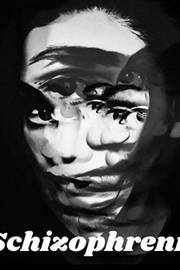
What is Schizophrenia and How do you treat It
13 Jul 2020- Schizophrenia is a chronic and severe mental disorder that affects how a person thinks, feels, and behaves.
- People with schizophrenia may seem like they have lost touch with reality.
- Although schizophrenia is not as common as other mental disorders, the symptoms can be very disabling.
- Schizophrenia is a chronic and severe mental disorder affecting 20 million people worldwide. It affects about 1% of the population.
- Symptoms of schizophrenia usually start between ages 16 and 30. In rare cases, children have schizophrenia too.
- It starts early and can have a chronic course and hence causes lots of disability and distress.
- Common experiences include hallucinations (hearing voices or seeing things that are not there), delusions (fixed, false beliefs), disorganized thinking and altered behaviours & Emotions.
- Stigma, discrimination and violation of human rights of people with schizophrenia is common.
- Etiology: Research has not identified one single factor. It is thought that an interaction between genes and a range of environmental factors may cause schizophrenia.Psychosocial factors may also contribute to schizophrenia.
- Scientists have long known that schizophrenia sometimes runs in families.different genes may increase the risk of schizophrenia, but that no single gene causes the disorder by itself. It is not yet possible to use genetic information to predict who will develop schizophrenia.
- Scientists also think that interactions between genes and aspects of the individual’s environment are necessary for schizophrenia to develop. Environmental factors may involve:
- Exposure to viruses
- Malnutrition before birth
- Problems during birth
- Psychosocial factors
- More than 69% of people with schizophrenia are not receiving appropriate care. Ninety per cent of people with untreated schizophrenia live in low- and middle- income countries. Lack of access to mental health services is an important issue. Furthermore, people with schizophrenia are less likely to seek care than the general population.
- Schizophrenia is treatable. Treatment with medicines and psychosocial support is effective.
- Antipsychotics:Antipsychotic medications are usually taken daily in pill or liquid form. Some antipsychotics are available as injections that are given once or twice a month. Some people have side effects when they start taking medications, but most side effects go away after a few days. Doctors and patients can work together to find the best medication or medication combination, and the right dose.
- After the symptoms of schizophrenia are controlled, various types of therapy can continue to help people manage the illness and improve their lives. Therapy and supports can help people learn social skills, cope with stress, identify early warning signs of relapse and prolong periods of remission.
- Because schizophrenia typically strikes in early adulthood, individuals with the disorder often benefit from rehabilitation to help develop life-management skills, complete vocational or educational training, and hold a job.
Important Links:
1.https://www.psychiatry.org/patients-families/schizophrenia/what-is-schizophrenia
2.https://www.mayoclinic.org/diseases-conditions/schizophrenia/symptoms-causes/syc-20354443
3.https://www.nimh.nih.gov/health/topics/schizophrenia/index.shtml
4.https://www.who.int/news-room/fact-sheets/detail/schizophrenia